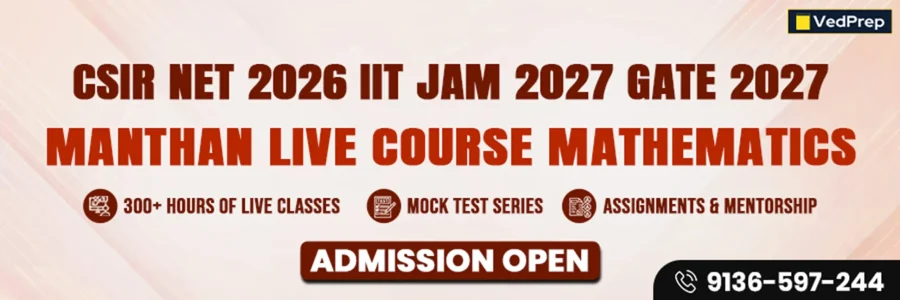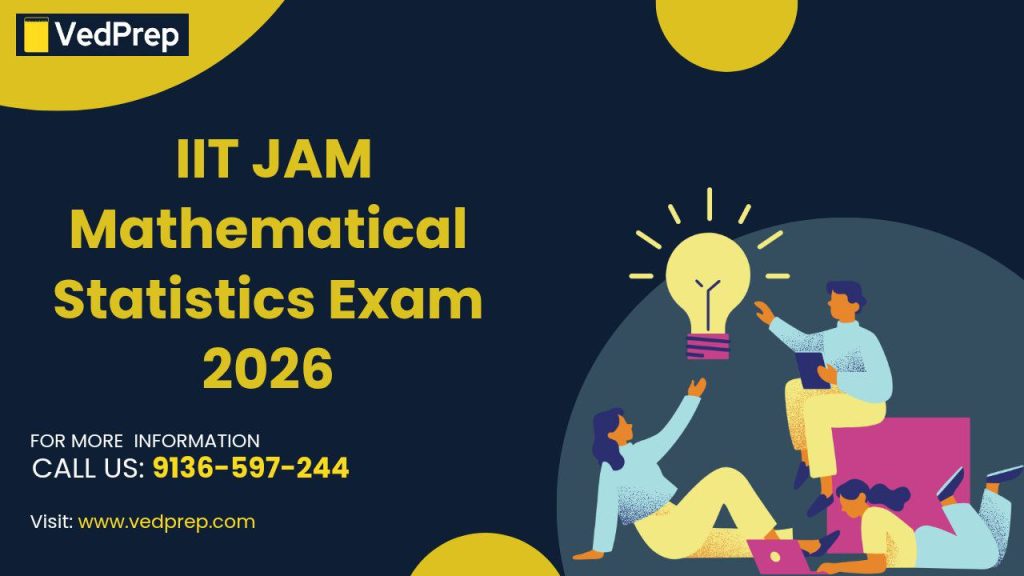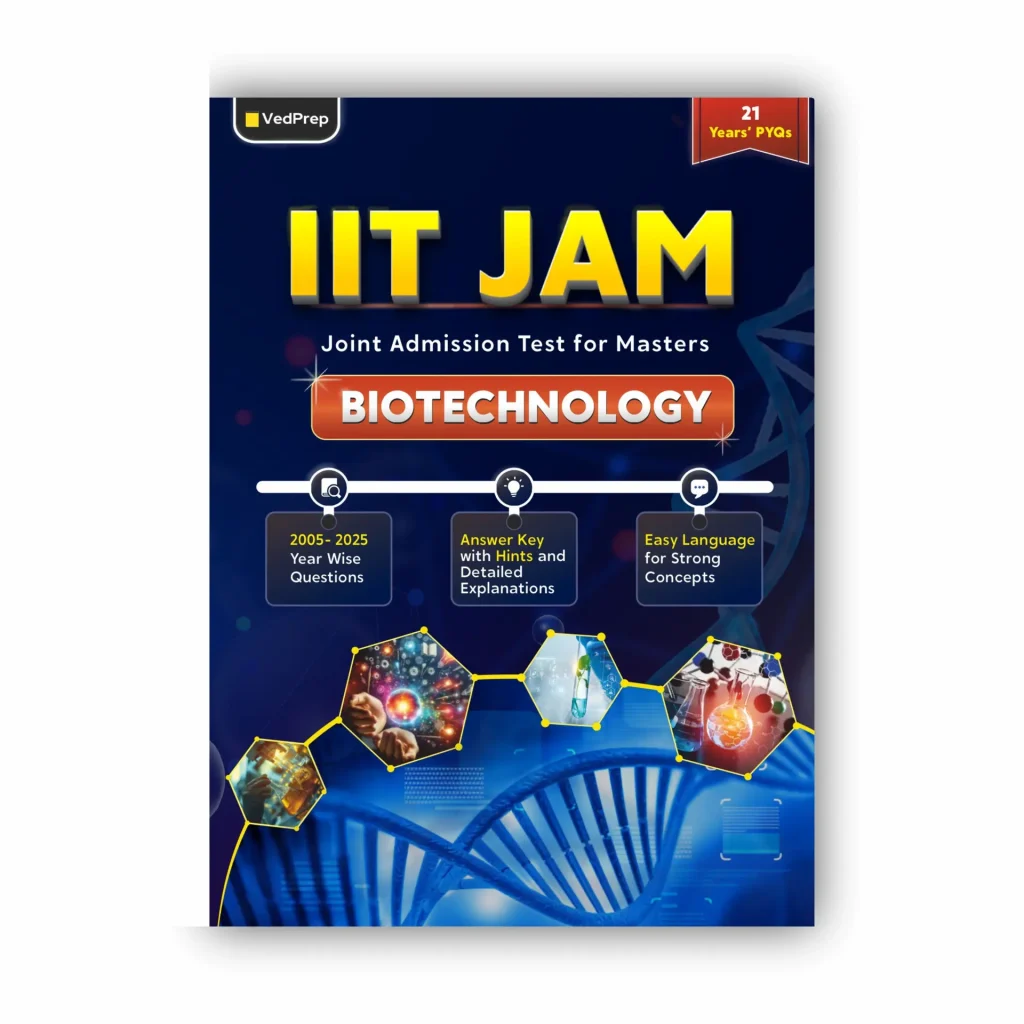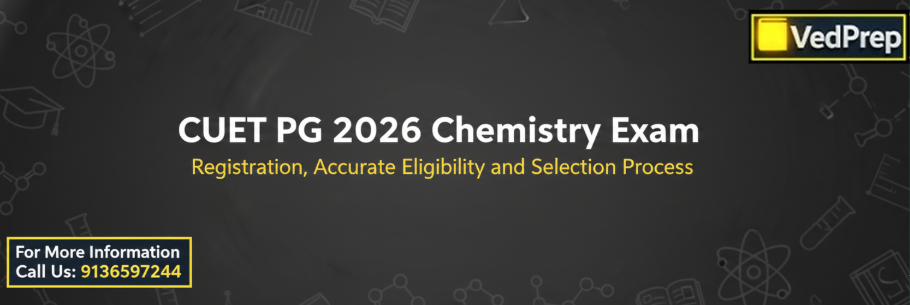IIT JAM Mathematical Statistics Exam 2026 is one of the most competitive exams in India. It helps students to get admission into postgraduate studies like M.Sc. and PhD. Once aspirants qualify IIT JAM Exam, they can get admission into top institutions like IITs, NITs and IISC. IIT JAM Mathematical Statistics Exam 2026 tests Mathematical knowledge of aspirants that can be applied in Statistics. Statistics is used to analyse and collect numerical data, often in large quantities. Here’s a quick guideline on IIT JAM Mathematical Statistics Exam 2026, follow this guide for better results.
IIT JAM Mathematical Statistics Exam 2026 Exam date
IIT JAM Mathematical Statistics Exam 2026 exam date has been announced on official website of IIT JAM. Candidates must check exam related announcement on official website.
| Events | Date |
| Start of Online Registration Process | 5th September, 2025 |
| Last date to apply | 20th October, 2025 |
| IIT JAM Mathematical Statistics Exam 2026 Exam date | 15th February, 2026 |
| Announcement of Results | 20th March, 2026 |
IIT JAM Mathematical Statistics Exam 2026 Pattern
IIT JAM Mathematical Statistics Exam 2026 Pattern is given below
| Detail | Description |
| Exam Name | IIT JAM Mathematical Statistics Exam 2026 |
| Full Form | Indian Institutes of Technology Joint Admission Test |
| Conducting Body | Indian Institute of Technology (IITs) |
| Mode | Online |
| Exam Duration | 3hrs |
| Number of Questions | 60 |
| Total Marks | 100 |
| Marking Scheme | Negative marking applicable only for MCQs |
IIT JAM Mathematical Statistics Exam 2026 Syllabus
IIT JAM Mathematical Statistics Exam 2026 Syllabus is divided into two parts, first part carries Mathematical questions with a weightage of about 30% and second part carries Statistics questions with a weightage of about 70%. IIT JAM Mathematical Statistics Exam 2026 syllabus is given below
| Chapters | Topics |
| Sequences and Series of Real Numbers (Mathematics) | Sequences of real numbers, their convergence, and limits. Cauchy sequences and their convergence. Monotonic sequences and their limits. Limits of standard sequences. Infinite series and their convergence and divergence. Convergence of series with non-negative terms. Tests for convergence and divergence of a series. Comparison test, limit comparison test, D’Alembert’s ratio test, Cauchy’s 𝑛𝑡 root test, Cauchy’s condensation test and integral test. Absolute convergence of series. Leibniz’s test for the convergence of alternating series. Conditional convergence. Convergence of power series and radius of convergence. |
| Differential Calculus of one and two real variables (Mathematics) | Limits of functions of one real variable. Continuity and differentiability of functions of one real variable. Properties of continuous and differentiable functions of one real variable. Rolle’s theorem and Lagrange’s mean value theorem. Higher order derivatives, Lebnitz’s rule and its applications. Taylor’s theorem with Lagrange’s and Cauchy’s form of remainders. Taylor’s and Maclaurin’s series of standard functions. Indeterminate forms and L’Hospital’s rule. Maxima and minima of functions of one real variable, critical points, local maxima and minima, global maxima and minima, and points of inflexion. Limits of functions of two real variables. Continuity and differentiability of functions of two real variables. Properties of continuous and differentiable functions of two real variables. Partial differentiation and total differentiation. Lebnitz’s rule for successive differentiation. Maxima and minima of functions of two real variables. Critical points, Hessian matrix, and saddle points. Constrained optimisation techniques (with Lagrange multiplier). |
| Integral Calculus (Mathematics) | Fundamental theorems of integral calculus (single integral). Lebnitz’s rule and its applications. Differentiation under integral sign. Improper integrals. Beta and Gamma integrals: properties and relationship between them. Double integrals. Change of order of integration. Transformation of variables. Applications of definite integrals. Arc lengths, areas and volumes. |
| Matrices and Determinants (Mathematics) | Vector spaces with real fields. Subspaces and sum of subspaces. Span of a set. Linear dependence and independence. Dimension and basis. Algebra of matrices. Standard matrices (Symmetric and Skew Symmetric matrices, Hermitian and Skew Hermitian matrices, Orthogonal and Unitary matrices, Idempotent and Nilpotent matrices). Definition, properties and applications of determinants. Evaluation of determinants using transformations. Determinant of product of matrices. Singular and non-singular matrices and their properties. Trace of a matrix. Adjoint and inverse of a matrix and related properties. Rank of a matrix, row-rank, column-rank, standard theorems on ranks, rank of the sum and the product of two matrices. Row reduction and echelon forms. Partitioning of matrices and simple properties. Consistent and inconsistent systems of linear equations. Properties of solutions of systems of linear equations. Use of determinants in solving the system of linear equations. Cramer’s rule. Characteristic roots and Characteristic vectors. Properties of characteristic roots and vectors. Cayley Hamilton theorem. |
| Probability (Statistics) | Random Experiments. Sample Space and Algebra of Events (Event space). Relative frequency and Axiomatic definitions of probability. Properties of probability function. Addition theorem of probability function (inclusion exclusion principle). Geometric probability. Boole’s and Bonferroni’s inequalities. Conditional probability and Multiplication rule. Theorem of total probability and Bayes’ theorem. Pairwise and mutual independence of events. |
| Standard Univariate Distributions (Statistics) | Degenerate, Bernoulli, Binomial, Negative binomial, Geometric, Poisson, Hypergeometric, Uniform, Exponential, Double exponential, Gamma, Beta (of first and second type), Normal and Cauchy distributions, their properties, interrelations, and limiting (approximation) cases. |
| Univariate Distributions (Statistics) | Definition of random variables. Cumulative distribution function (c.d.f.) of a random variable. Discrete and Continuous random variables. Probability mass function (p.m.f.) and Probability density function (p.d.f.) of a random variable. Distribution (c.d.f., p.m.f., p.d.f.) of a function of a random variable using transformation of variable and Jacobian method. Mathematical expectation and moments. Mean, Median, Mode, Variance, Standard deviation, Coefficient of variation, Quantiles, Quartiles, Coefficient of Variation, and measures of Skewness and Kurtosis of a probability distribution. Moment generating function (m.g.f.), its properties and uniqueness. Markov and Chebyshev inequalities and their applications. |
| Multivariate Distributions (Statistics) | Definition of random vectors. Joint and marginal c.d.f.s of a random vector. Discrete and continuous type random vectors. Joint and marginal p.m.f., joint and marginal p.d.f. Conditional c.d.f., conditional p.m.f. and conditional p.d.f.. Independence of random variables. Distribution of functions of random vectors using transformation of variables and the Jacobian method. Mathematical expectation of functions of random vectors. Joint moments, Covariance and Correlation. Joint moment generating function and its properties. Uniqueness of joint m.g.f. and its applications. Conditional moments, conditional expectations and conditional variance. Additive properties of Binomial, Poisson, Negative Binomial, Gamma and Normal Distributions using their m.g.f. |
| Standard Multivariate Distributions (Statistics) | Multinomial distribution as a generalisation of binomial distribution and its properties (moments, correlation, marginal distributions, additive property). Bivariate normal distribution, its marginal and conditional distributions and related properties. |
| Sampling Distributions (Statistics) | Definitions of random sample, parameter and statistic. Sampling distribution of a statistic. Order Statistics: Definition and distribution of the 𝑟𝑡ℎ order statistic (d.f. and p.d.f. for i.i.d. case for continuous distributions). Distribution (c.d.f., p.m.f., p.d.f.) of smallest and largest order statistics (i.i.d. case for discrete as well as continuous distributions). Central Chi-square distribution: Definition and derivation of p.d.f. of central 𝜒2 distribution with 𝑛 degrees of freedom (d.f.) using m.g.f. Properties of central 𝜒2 distribution, additive property and limiting form of central 𝜒2 distribution. Central Student’s 𝒕-distribution: Definition and derivation of p.d.f. of Central Student’s 𝑡-distribution with 𝑛 d.f., Properties and limiting form of central 𝑡-distribution. Snedecor’s Central 𝑭-distribution: Definition and derivation of p.d.f. of Snedecor’s Central 𝐹-distribution with (𝑚, 𝑛) d.f. Properties of Central 𝐹-distribution, distribution of the reciprocal of 𝐹-distribution. Relationship between 𝑡, 𝐹 and 𝜒2 distributions. |
| Limit Theorems (Statistics) | Convergence in probability, convergence in distribution and their interrelations. Weak law of large numbers and Central Limit Theorem (i.i.d. case) and their applications. |
| Estimation (Statistics) | Unbiasedness. Sufficiency of a statistic. Factorisation theorem. Complete statistic. Consistency and relative efficiency of estimators. Uniformly Minimum Variance Unbiased Estimator (UMVUE). Rao-Blackwell and Lehmann-Scheffe theorems and their applications. Cramer-Rao inequality and UMVUEs. Methods of Estimation: Method of moments, method of maximum likelihood, invariance of maximum likelihood estimators. Least squares estimation and its applications in simple linear regression models. Confidence intervals and confidence coefficient. Confidence intervals for the parameters of univariate normal, two independent normal, and exponential distributions. |
| Testing of Hypotheses (Statistics) | Null and alternative hypotheses (simple and composite), Type I and Type II errors. Critical region. Level of significance, size and power of a test, p-value. Most powerful critical regions and most powerful (MP) tests. Uniformly most powerful (UMP) tests. Neyman Pearson Lemma (without proof) and its applications to construction of MP and UMP tests for parameters of single parameter parametric families. Likelihood ratio tests for parameters of univariate normal distribution. |
IIT JAM Mathematical Statistics Exam 2026 Syllabus PDF
IIT JAM Mathematical Statistics Exam 2026 Syllabus PDF is given in link below
| IIT JAM Mathematical Statistics Exam 2026 Syllabus PDF |
IIT JAM Mathematical Statistics Exam PYQs
IIT JAM Mathematical Statistics Exam PYQs are given below;
| Years | PDF Links |
| 2025 | Download PDF |
| 2024 | Download PDF |
| 2023 | Download PDF |
| 2022 | Download PDF |
| 2021 | Download PDF |
| 2020 | Download PDF |
How to Prepare IIT JAM Mathematical Statistics Exam 2026
Aspirants are always confused about where to start their preparation for IIT JAM Mathematical Statistics Exam. So, here’s a quick guideline on how to get started with IIT JAM Mathematical Statistics Exam 2026.
- Familiarise yourself with Syllabus: Analyse your syllabus thoroughly, understand frequently asked topics, make concise notes and focus on weaker areas so that you can allocate your time accordingly.
- Strengthen your Concepts: Refer to standard books and build your concepts. Standard books strengthen your concepts and help you solve both direct and tricky questions in the exam.
- Use Online Resources: Use right online resources like the ones available on educational platforms like VedPrep and YouTube. Join online coaching platforms like VedPrep that help guide you throughout your preparation.
- Solve Previous Years Questions and Mock Tests: Solving PYQs and mock tests helps you to get familiar with your syllabus and also to improve your time management and accuracy.
- Revise Regularly: Revise key topics to retain the information that you have read. Constant revision helps recall formulas, concepts and shortcuts in exam.
IIT JAM Mathematical Statistics Exam 2026 FAQs
Where can I watch IIT JAM Mathematical Statistics Exam Videos?
You can watch videos related to IIT JAM Mathematical Statistics preparation on platforms like VedPrep.
Where to get IIT JAM Mathematical Statistics Exam 2026 Syllabus?
IIT JAM Mathematical Statistics Exam 2026 syllabus can be downloaded from the official website of IIT JAM or from platforms like VedPrep.
Which IIT will conduct IIT JAM Exam 2026?
IIT Bombay will conduct IIT JAM Exam 2026.
When to start applying for IIT JAM Mathematical Statistics Exam 2026?
The candidates can start applying from 5th September, 2025.
What's the last date to apply for IIT JAM Mathematical Statistics Exam 2026?
The last date to apply is 12th October, 2025.














